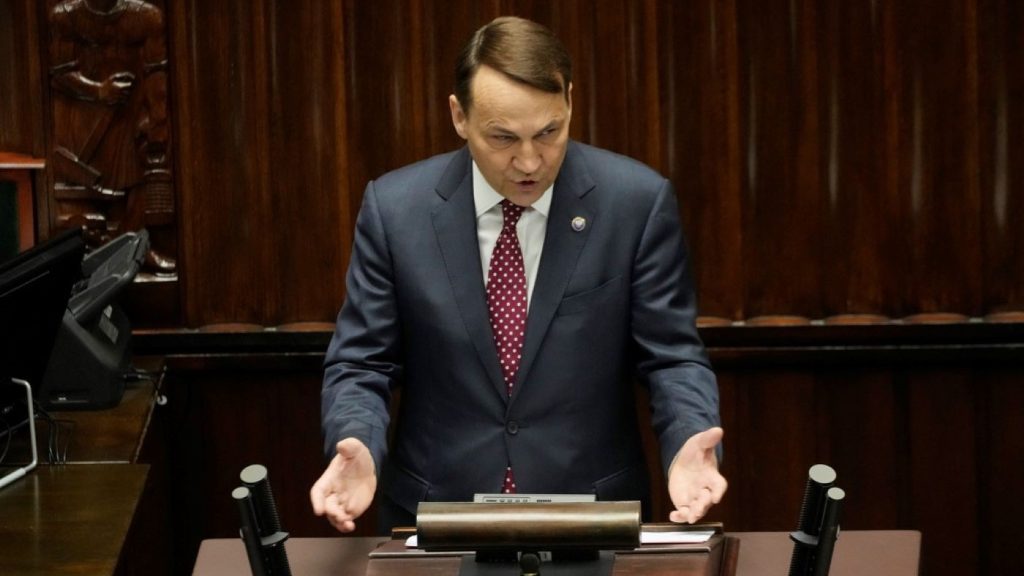In a speech on Thursday, Poland’s Foreign Minister, Radoslaw Sikorski, stated that Russian President Vladimir Putin should be afraid of a confrontation with NATO as it would ultimately result in Russia’s loss.
“It is not we, the West, who should be worried about a clash with Putin, but the opposite,” Sikorski stated in a translated speech to the Sejm, the lower house of parliament, as first reported by Politico. “It is important to remind [everyone], not to escalate the sense of threat in the Russians, because NATO is a defensive alliance, but to illustrate that an attack by Russia on any of the members of the Alliance would lead to [Russia’s] unavoidable defeat.”
With the ongoing war in Ukraine, Western allies are concerned that Russia may shift its focus to NATO countries after Ukraine. Former President Mike Pence warned that Putin could target a NATO nation if it succeeds in its conflict with Kyiv.
The United States Congress recently approved a much-needed foreign aid package that would provide Ukraine with $61 billion to continue its fight. Sikorski mentioned that Polish companies should contribute to the effort to rebuild the Ukrainian economy, and Russia should be held accountable for the harm it has caused.
Sikorski, in his speech concentrating on the country’s foreign policy, remarked that Russia’s military and economy are far inferior to those of Western allies.
“Putin’s only chance is our lack of resolve,” he stated, underscoring that NATO’s combined resources and capabilities far surpass those of Russia.
He also highlighted Poland's commitment to aiding Ukraine in joining the European Union, despite concerns about its membership. Sikorski referenced that “we recall that in 2004, similar concerns were raised by the decision to admit Poland,” in comments highlighted by the Polish News Agency.
The foreign minister emphasized Polish Prime Minister Donald Tusk’s vision for the future, while criticizing the previous government's “incorrect decisions” that resulted in a loss of credibility and prestige. His remarks seem to spotlight the country’s aspiration to reestablish itself as a trustworthy partner as the war persists.









